
To relieve the pain and discomfort caused by pulpitis, antibiotics to treat pulpitis are the optimal choice. Antibiotics are divided into many different types depending on the effects they bring. However, using drugs to treat pulpitis only brings temporary effects in the short term. To completely treat it, patients can only go to the dentist and perform specialized measures.
1. Distinguishing between drugs for the treatment of pulpitis
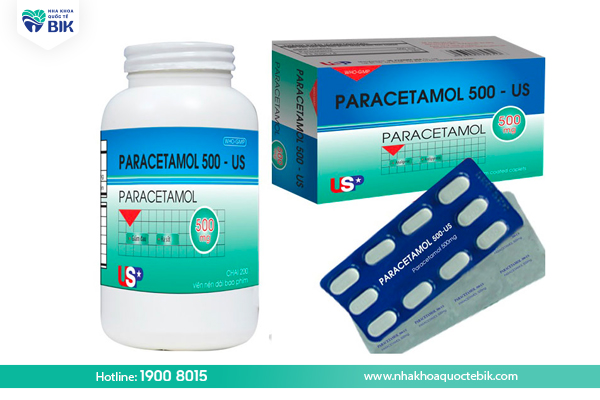
Drugs for the treatment of pulpitis
Usually, in cases of pulpitis, doctors can prescribe drugs classified into groups with different effects as follows:
1.1. Group of drugs with pain-relieving effects
One of the most easily recognizable symptoms of pulpitis is the appearance of continuous pain and discomfort. This condition affects the patient’s ability to chew and the patient’s quality of life. The doctor may prescribe some of the following medications:
Paracetamol pain reliever
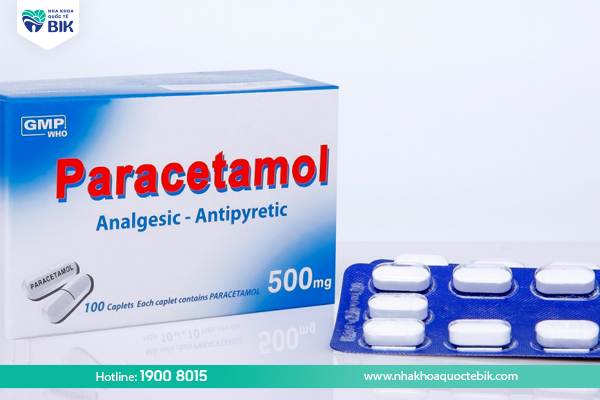
Paraxetamol pulpitis treatment medicine image
Paracetamol is a commonly used pulpitis pain reliever, helping to reduce pain, inflammation and effectively kill bacteria. However, this is only a temporary pain reliever for pulpitis and does not have a permanent treatment effect.
In addition, the drug can also cause some dangerous side effects for people with cardiovascular or liver and kidney diseases. In addition, Paracetamol is contraindicated for people who use alcohol and beer to ensure safety.
Note: Read the instructions carefully before use, should only use 325 – 650mg / 1 time and use 2 – 4 hours apart. If using 500mg / 1 time, use 6 – 8 hours apart.
Efferalgan medicine for pulpitis
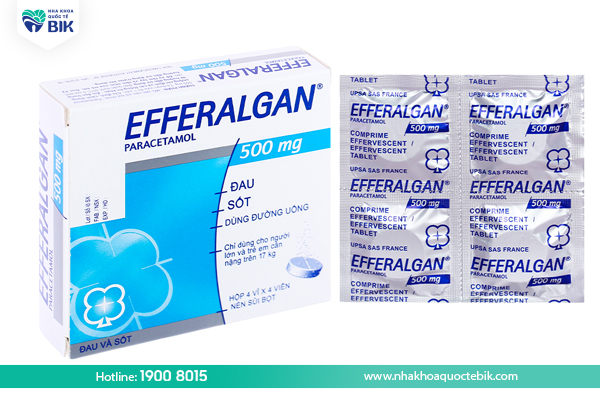
Picture of medicine for pulpitis treatment
Efferalgan is also one of the medicines that effectively relieves pain from pulpitis. The medicine is prepared in the form of effervescent tablets, when dropped into water, it will quickly dissolve in water. Although it is not a medicine to completely cure pulpitis, Efferalgan can reduce pain, discomfort, and reduce fever when suffering from toothache. However, the medicine only paralyzes the nerves to help relieve pain temporarily and the pain will reappear when the medicine wears off.
1.2. Antibacterial antibiotics
In case of pulpitis caused by bacterial infection, depending on the level of infection, the doctor will prescribe the appropriate antibiotic to treat pulpitis:
Clindamycin antibiotic
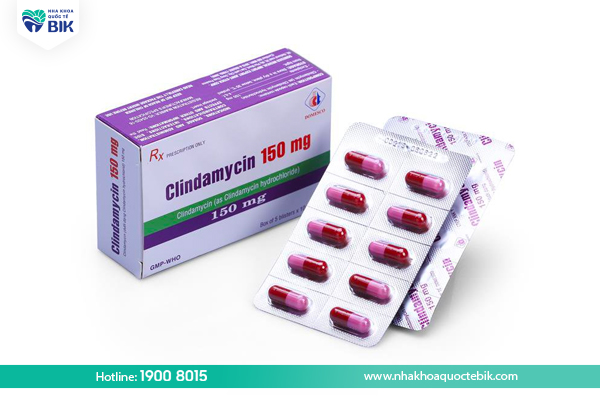
Clindamycin antibiotic for pulpitis treatment
Clindamycin is the most common antibiotic used to treat pulpitis today. The drug works to prevent and inhibit the protein synthesis of bacteria that cause inflammation, thereby significantly reducing the symptoms of pain and discomfort. Clindamycin is often prescribed instead of penicillin allergy or resistance.
The dosage of Clindamycin to treat pulpitis is 300 – 600mg / 1 time, each time 8 hours apart or depending on the specific condition of the patient, the doctor will prescribe the appropriate dose. Note, this drug is contraindicated for people with stomach pain or allergies to the ingredients of the drug.
Penicillin/ Amoxicillin antibiotics
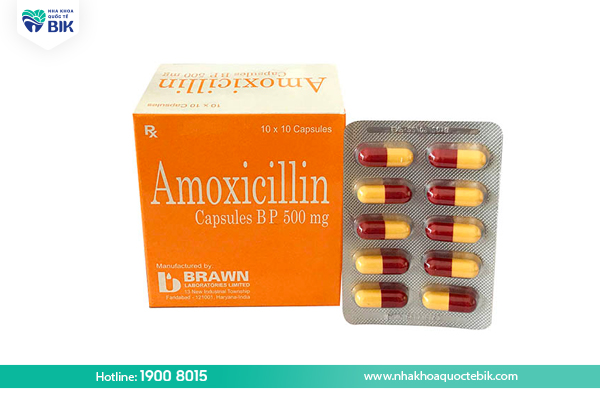
Amoxicillin antibiotics for pulpitis
Penicillin is also one of the common antibiotics for pulpitis. This drug works based on the mechanism of maintaining a stable concentration of the drug in the body. In some cases of severe infection, the doctor may prescribe a combination of Amoxicillin and Clavulantate Acid to kill antibiotic-resistant bacteria.
Penicillin can cause allergic side effects, so people with pulpitis who have a history of allergies or show signs of allergies during use should inform their doctor for advice on using another medicine.
Because it contains quite strong antibiotics, the drug should only be used after a full meal to minimize the impact on the digestive system. The dosage of this drug is as follows:
– For children under 12 years old, take 3 times/day, 80mg each time.
– For adults and children over 12 years old, take 3 times/day, 1 tablet of 625mg each time.
2. Is it good to use antibiotics to treat pulpitis?
Antibiotics to treat pulpitis are highly effective in a short time, but the use of these drugs can lead to some potentially dangerous complications:
2.1. Killing beneficial bacteria in the body
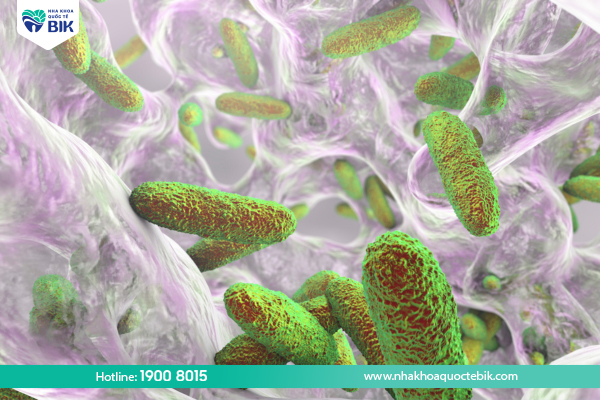
Antibiotics for the treatment of pulpitis can be highly effective thanks to their ability to quickly kill bacteria that cause inflammation and pain. However, the drug will also kill bacteria that are beneficial to overall health.
The consequence of this is a series of changes in the intestines, such as digestive disorders, appendicitis, stomach ulcers, etc. In addition, antibiotics also increase the risk of obesity in children.
Therefore, antibiotics should only be used when prescribed by a doctor for a short period of time, up to 1 week. Absolutely do not use them on your own or overuse them for a long time.
2.2. Liver and kidney function is affected
In addition, antibiotics used to treat pulpitis can also cause adverse effects, disrupting liver and kidney function. If this is not prevented in time, it can lead to necrosis, increased liver enzymes, bile obstruction, … and more seriously, it can destroy acute liver and kidney cells.
2.3. Risk of drug shock
Drug shock is a very dangerous side effect when using antibiotics, especially when using Penicillin to treat pulpitis. The phenomenon of reverse shock occurs depending on each person’s constitution when the body is allergic to the ingredients of the drug. Therefore, patients should inform their doctor about their health status when treating pulpitis.
2.4. Adverse effects on the cardiovascular system
Depending on each person’s health status, there are cases where the use of antibiotics to treat pulpitis can cause some cardiovascular problems such as lowering blood pressure and causing irregular heartbeat. Therefore, if the patient has a history of heart disease or low blood pressure, it is necessary to immediately notify the doctor to come up with an appropriate treatment plan.
2.5. Drug resistance
Overuse and overuse of antibiotics to treat pulpitis can lead to drug resistance. As a result, when the disease recurs, the drug will gradually no longer be effective and highly effective.
3. Can pulpitis be cured with antibiotics?
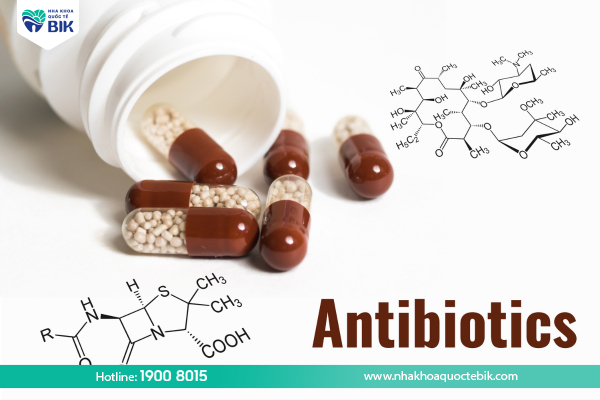
Antibiotics are often used in cases of tooth pulp pain, infection, inflammation, etc. The drug has the effect of attacking and penetrating to prevent the protein production process of bacteria, preventing them from growing and spreading, temporarily inhibiting pain in a short time.
Each type of antibiotic will have a different specific mechanism of action, so the doctor needs to examine specifically to prescribe medication based on the customer’s inflammatory condition. Antibiotics often take effect immediately after use and help significantly improve the severity of the disease after only 7 – 14 days for mild cases. However, to completely treat pulpitis, using antibiotics alone is not enough, but it is also necessary to strictly follow the doctor’s instructions in applying dental procedures. In cases of severe pulpitis, pulp death, no matter how many antibiotics are used, it cannot be completely cured.
In addition to using antibiotics, patients can also take advantage of folk tips to treat pulpitis at the dentist. Customers can refer to some ways to use natural ingredients that have anti-inflammatory, antiseptic and pain-relieving properties such as garlic, onion, turmeric, ginger, etc.
4. Completely treat pulpitis at the dentist without antibiotics
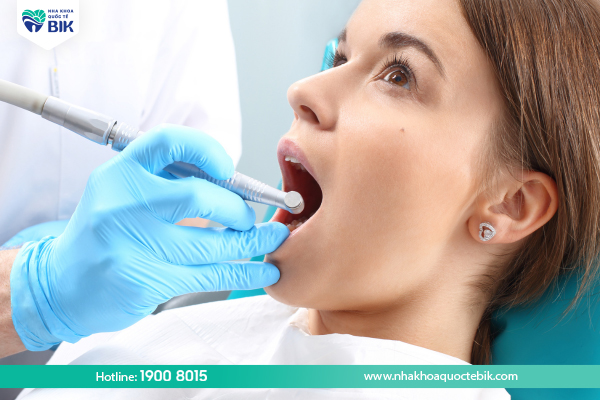
Antibiotics to treat pulpitis only have the effect of temporarily relieving pain, reducing swelling, pain, and infection, but are almost incapable of completely treating it. In addition, antibiotics have many dangerous side effects if not used as prescribed by a doctor.
Therefore, patients with pulpitis should proactively seek out a reputable dental clinic for examination as soon as possible. Specialists will diagnose, find the cause and from there advise on appropriate and timely treatment solutions. First, the dentist will clean the pulp, treat and restore the pulp function, then fill the tooth or crown it with porcelain to restore the tooth’s aesthetics.
5. BIK International Dental Clinic – Effective address for pulpitis treatment

BIK International Dental Clinic is confident to become one of the most prestigious addresses for pulpitis treatment today thanks to meeting all of the following criteria:
5.1. Team of good doctors
When choosing to treat pulpitis at BIK International Dental Clinic, customers will be directly examined and treated by a team of good doctors with many years of experience in the field of dentistry. With meticulous and precise operations, the doctors ensure that the pain and soreness caused by inflammation will end because the tooth pulp has been completely removed.
5.2. Equipped with modern technology
All branches of BIK International Dental Clinic are invested in the most modern and advanced machinery and technology today. This helps the diagnosis and treatment process become more accurate and easier. This helps to save maximum time for customers when coming to the dentist but still get the best treatment results.
5.3. International standard root canal treatment process
The root canal treatment process at BIK International Dental Clinic is guaranteed to be performed in the correct order of steps according to international standards to ensure the safety of customers. In addition, the Dental Clinic also fully meets the standards of the Ministry of Health on disinfection and sterilization, avoiding cross-infection between patients.
So, using antibiotics to treat pulpitis, although it can bring immediate results, does not cure the disease at its root. The only way to end the prolonged pain caused by infected pulp is to go to a dental clinic to be examined, consulted and receive specialized treatment.


















